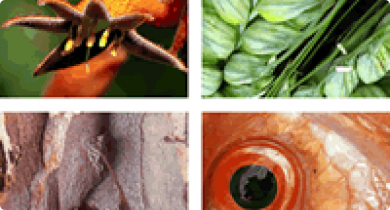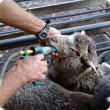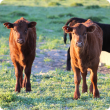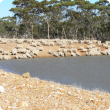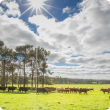Biosecurity & quarantine
The Department of Agriculture and Food, Western Australia (DAFWA) works with primary industries to safeguard our agricultural resources from biological threats and to maintain our export opportunities.
The State’s reputation is underpinned by a comprehensive biosecurity and quarantine system, developed and operated by DAFWA.
DAFWA is involved with:
- creation of surveillance and diagnostic programs
- animal and plant risk assessments
- importing and exporting requirements
- creating mechanisms to respond to incursions
- livestock movement and identification
- development and maintenance of biosecurity and quarantine legislation.
To find out more about what we do to protect agricultural production and export opportunities within the State please search our website.
Filter by search
Filter by topic
- Livestock health & diseases (34) Apply Livestock health & diseases filter
- Pests, weeds & diseases (34) Apply Pests, weeds & diseases filter
- (-) Remove Livestock management filter Livestock management
- Livestock & animals (34) Apply Livestock & animals filter
- Biosecurity (34) Apply Biosecurity filter
- (-) Remove Diseases filter Diseases
- Livestock biosecurity (33) Apply Livestock biosecurity filter
- Livestock disease surveillance (30) Apply Livestock disease surveillance filter
- Livestock species (21) Apply Livestock species filter
- Management & reproduction (13) Apply Management & reproduction filter
- Sheep (12) Apply Sheep filter
- Emergency animal disease preparedness (9) Apply Emergency animal disease preparedness filter
- Feeding & nutrition (7) Apply Feeding & nutrition filter
- Beef cattle (6) Apply Beef cattle filter
- Dairy cattle (5) Apply Dairy cattle filter
- Wildlife biosecurity (3) Apply Wildlife biosecurity filter
- Stockfeed (3) Apply Stockfeed filter
- Emergency response (3) Apply Emergency response filter
- Goats (3) Apply Goats filter
- Poultry & birds (2) Apply Poultry & birds filter
- Veterinary chemicals (2) Apply Veterinary chemicals filter
- Livestock movement & identification (2) Apply Livestock movement & identification filter
- Pigs (2) Apply Pigs filter
- Horses (2) Apply Horses filter
- Control methods (2) Apply Control methods filter
- Chemicals (2) Apply Chemicals filter
- Food, export & investment (2) Apply Food, export & investment filter
- Water management (1) Apply Water management filter
- Water (1) Apply Water filter
- Livestock research & development (1) Apply Livestock research & development filter
- Climate, land & water (1) Apply Climate, land & water filter

